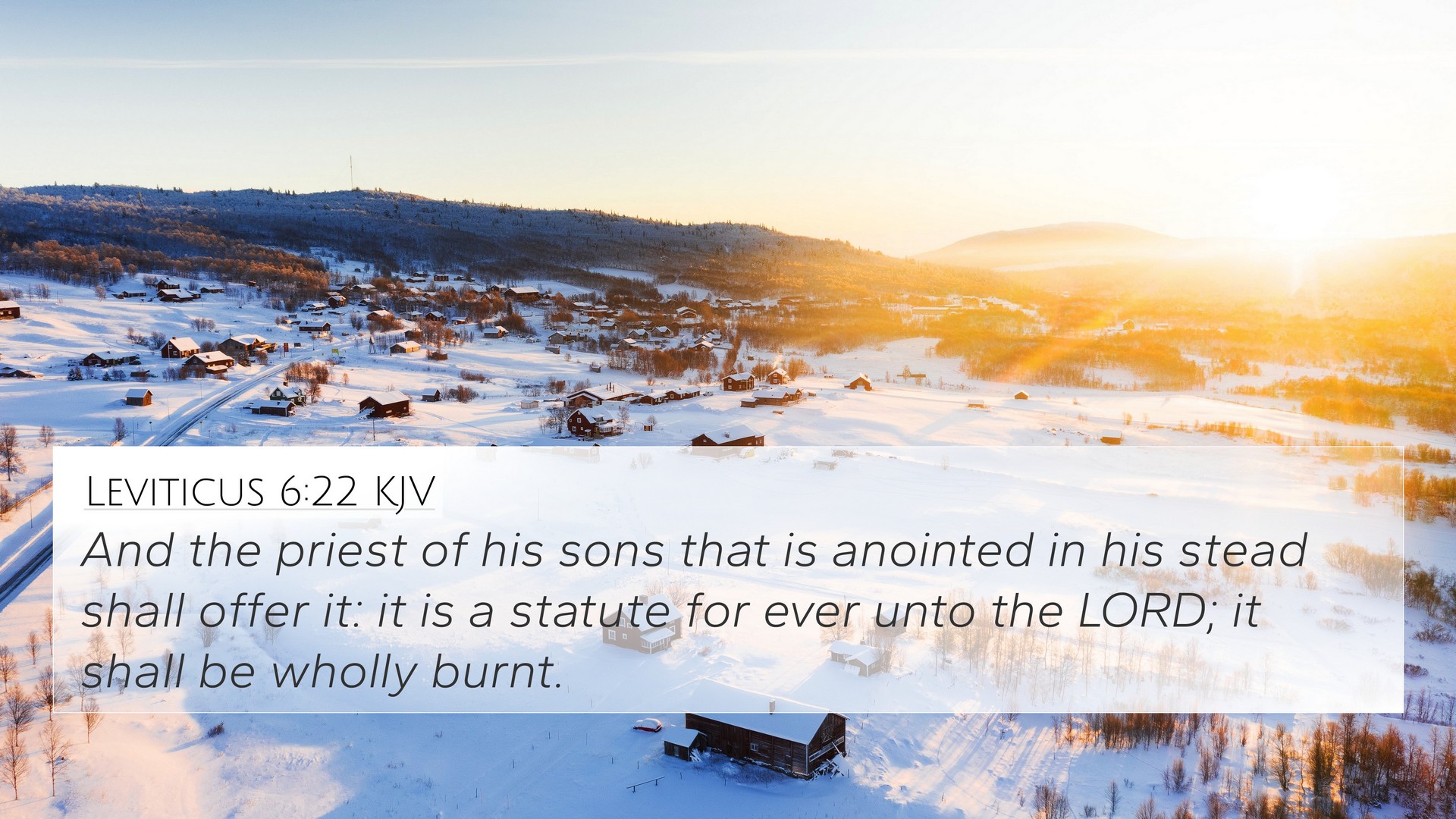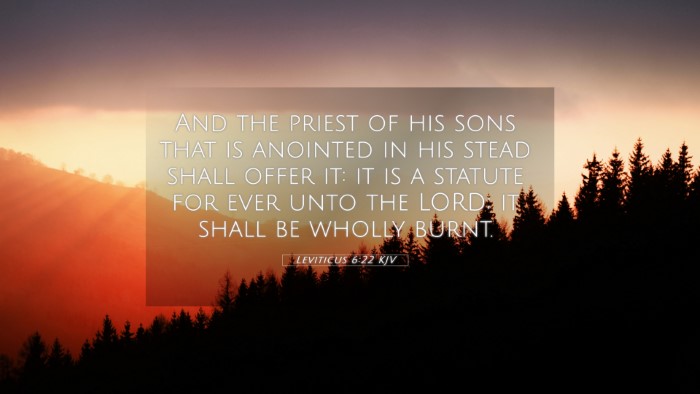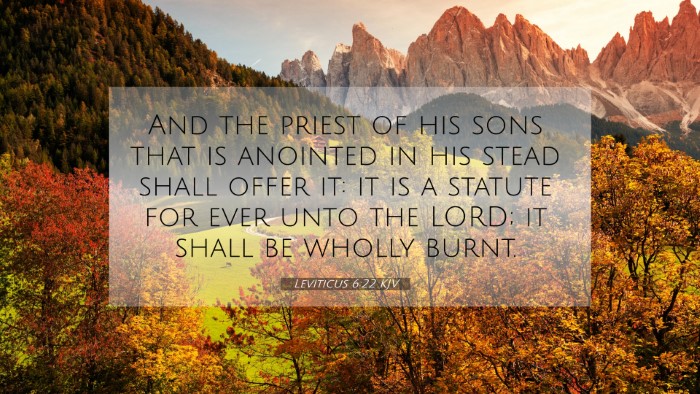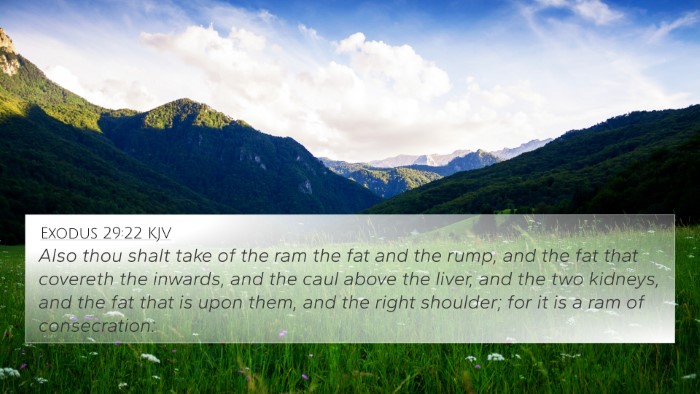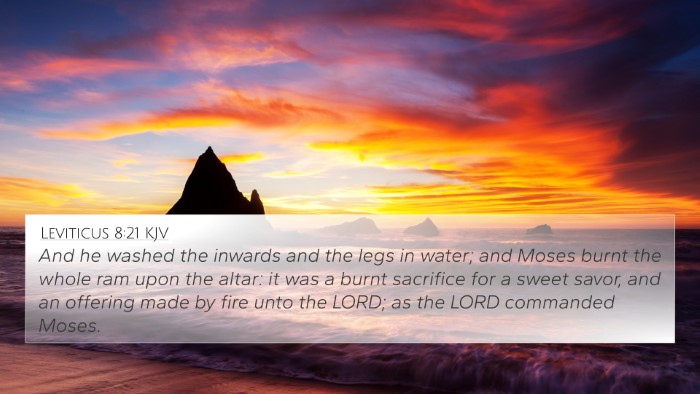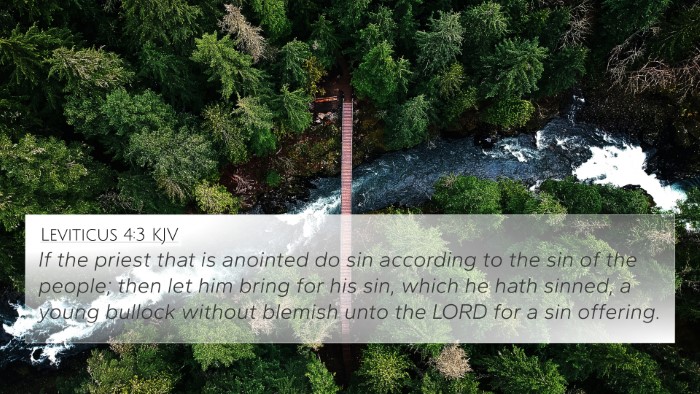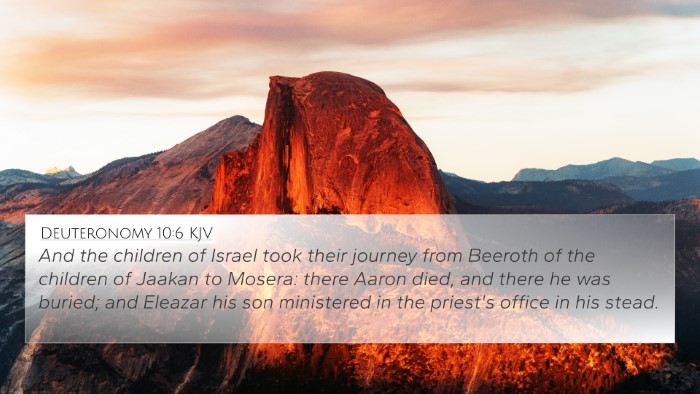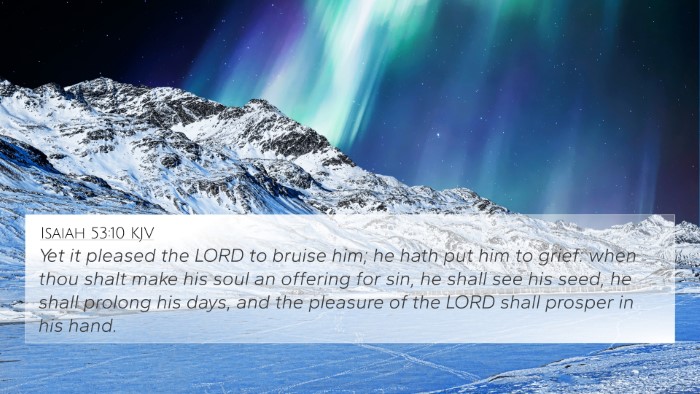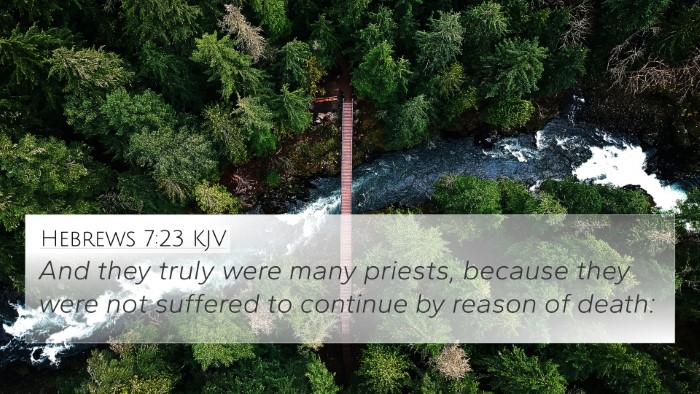Understanding Leviticus 6:22
Leviticus 6:22 reads: "The priest of his sons that is anointed in his stead shall offer it: it is a statute for ever unto the LORD; it shall be wholly burnt." This verse discusses the role of the anointed priest in offering sacrifices to the LORD, emphasizing both the continuity of priestly service and the permanence of God's statutes.
Summarized Meaning from Public Domain Commentaries
Insights from Matthew Henry
Henry highlights the importance of the priest’s anointing, indicating it is a divine appointment. This emphasizes that the sacrifices offered are to be taken seriously and must be performed by those ordained by God. It underscores a sense of formality and the need for holiness in service to God.
Insights from Albert Barnes
Barnes elaborates on the continuity of the priesthood, explaining that the descendants of the priests have the duty to continue the sacrificial rituals. He stresses that the commandments and statutes presented in Leviticus are to be followed diligently as a covenant between God and His people, emphasizing obedience to divine law.
Insights from Adam Clarke
Clarke discusses the symbolic significance of the burnt offerings, noting that these sacrifices represent total dedication to God. The anointing of priests symbolizes being set apart for God’s service, highlighting the calling to lead God's people in worship and sacrifice.
Key Themes and Insights
- Continuity of Priesthood: The verse emphasizes that the work of the priests continues through successive generations, signifying God's unchanging covenant.
- Divine Appointment: The anointing represents that only God can appoint leaders in worship.
- Holiness of Offerings: Each sacrifice is a dedication of the entire being to God, symbolized by the entirety of the burnt offering.
- Status of Statutes: The mention of a "statute for ever" indicates the need for enduring obedience to God's commands.
- Symbolism of the Anointing: Anointing conveys being set apart for a sacred purpose, reflecting a life dedicated to divine service.
Cross-References
This verse can be linked to several other Biblical texts that provide deeper understanding or thematic parallels:
- Exodus 29:9: Discusses the consecration of priests, affirming their sacred role.
- Hebrews 7:24-25: Reflects on the eternal priesthood of Christ, linking to the idea of an eternal covenant.
- Numbers 18:1-7: Further details concerning the duties and privileges of the priests and the sacrificial system.
- 1 Peter 2:9: Describes believers as a royal priesthood, indicating the priestly role of Christians today.
- Romans 12:1: Apostolic call to present oneself as a living sacrifice, showing parallels to the nature of burnt offerings.
- Psalm 110:4: References the order of Melchizedek, connecting with themes of priesthood and eternity.
- Malachi 2:7: Emphasizes that the lips of a priest should preserve knowledge, aligning with proper conduct in sacrifices.
Thematic Bible Verse Connections
Leviticus 6:22 serves as a bridge for understanding several themes throughout the Bible:
- Obedience and Worship: References to how the offerings reflect complete obedience and devotion.
- Significance of Anointing: Connections to New Testament references of anointing and the Holy Spirit.
- Sacrificial System: Links to both Jewish traditions and the fulfillment of sacrificial narratives in Christ.
Comparative Bible Verse Analysis
Cross-referencing Leviticus 6:22 with other scriptures yields interesting insights:
- Connection with New Testament Priesthood: Hebrews 4:14 compares Christ's role as High Priest, providing continuity in understanding priestly duties.
- Fulfillment of Old Covenant Requirements: Fulfilled in Christ as described in Matthew 5:17 where He acknowledges the law.
Tools for Bible Cross-Referencing
For deeper study and exploration of how Leviticus 6:22 interacts with other passages, consider utilizing a Bible concordance or cross-reference guide. These tools can help you:
- Identify connections between Old and New Testament.
- Understand detailed cross-references among the Gospels.
- Make connections relevant to specific themes, such as grace, sacrifice, and holiness.
Conclusion
Leviticus 6:22 represents a foundational aspect of Israel’s worship and serves as a significant point of reflection on the roles of priests, the importance of sacrifice, and the understanding of holiness. By connecting this verse with others and understanding its implications, both historically and thematically, one can appreciate the depth of God’s word and its application in the life of believers today.
